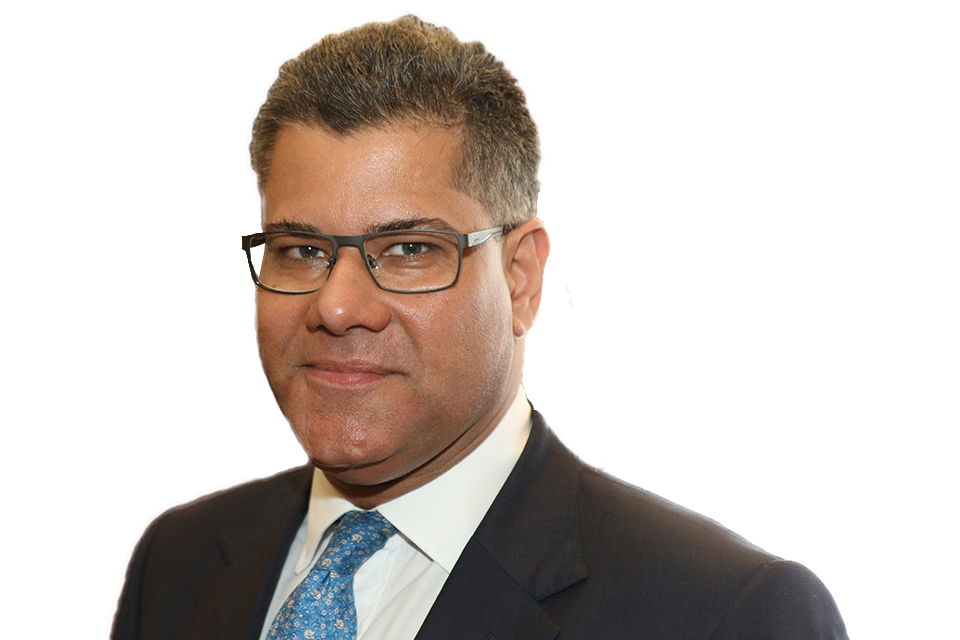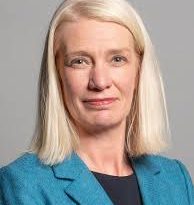Alok Sharma – 2022 Speech at the Ceremonial Opening Speech at COP27
The speech made by Alok Sharma, the COP26 President, on 6 November 2022.
Distinguished delegates, ladies and gentlemen, it gives me great pleasure to declare open the twenty-seventh session of the Conference of the Parties to the United Nations Framework Convention on Climate Change.
Friends, let me begin by thanking our friends here in Egypt for such a warm welcome.
My team and I know just how demanding hosting such a conference is, and how many people have worked incredibly hard to get us to this point.
So congratulations, and thank you again.
Now as the UK Presidency comes to an end, I want to reflect on what we achieved together in Glasgow,
and also what has happened since in our Presidency year.
Last November, the world gathered at COP26 against a fractured and fractious geopolitics, as a once-in-a-century pandemic dragged mercilessly on.
And yet, leaders recognised that, despite their differences, often profound, cooperation on climate and nature is in our collective self-interest.
And thanks to that spirit of cooperation and compromise, we forged together the Glasgow Climate Pact.
Collectively we achieved something historic, and something hopeful.
With your help:
We closed the Paris Rulebook.
We made unprecedented progress on coal, and on fossil fuel subsidies.
We committed to rapidly scale up finance, and to double adaptation finance by 2025.
We reiterated the urgency of action and support for loss and damage, and established serious work on funding arrangements.
We hope that this will pave the way for a formal agenda item and tangible progress here in Egypt.
And every Party, and I repeat this, every Party agreed to revisit and strengthen their 2030 emissions reduction targets, to align with Paris.
I want to thank the 29 countries which have already updated their NDCs since Glasgow.
From Australia to Micronesia.
India to Vanuatu.
Norway to Gabon.
And we also made progress outside the negotiating rooms, with commitments from business, from finance, from philanthropy.
Friends, thanks to the work we did together, we achieved our objective, the goal at the heart of the Paris Agreement:
we kept 1.5 degrees alive.
Now, none of us could have anticipated the year that followed.
We have been buffeted by global headwinds that have tested our ability to make progress.
Putin’s brutal and illegal war in Ukraine has precipitated multiple global crises: energy and food insecurity, inflationary pressures and spiralling debt.
These crises have compounded existing climate vulnerabilities, and the scarring effects of the pandemic.
And yet, despite this context, there has been some progress in implementing the commitments we delivered in Glasgow.
Over 90 percent of the global economy is now covered by a net zero target, up from less than 30 percent when the UK took on the COP26 role.
The biggest companies and financial institutions in the world have committed to net zero and they have done so in force,
with a global wall of capital creating green jobs, and directing billions into the green industries of both today and tomorrow.
Countries and companies are making tangible sectoral progress,
from Zero Emission Vehicles to our Breakthrough Agenda,
and are accelerating the rollout of renewable energy across the world.
The Secretary General has been clear: our shared long-term futures do not lie in fossil fuels and I agree with him wholeheartedly.
Every major report published this year underscores the point that progress is being made.
Thanks to the commitments we garnered ahead of and at COP26, and indeed in our Presidency year, emissions in 2030 are expected to be around six gigatons lower.
That is the equivalent of 12 percent of today’s global annual emissions.
And with full implementation of all the commitments in place today, including NDCs and net zero targets, the reports suggest that we are heading to 1.7 degrees warming by the end of the century.
Not 1.5.
But still, progress.
So, to those who remain sceptical about the multilateral process, and of the COP process in particular, my message is clear:
as unwieldy and sometimes as frustrating as these processes can be, the system is delivering.
And there are many people to thank for that.
And certainly too many to name.
The Prime Ministers and Presidents who have sensed the changing wind, and indeed sought instead to harness it.
The Ministers to the miners who have recognised a just and sustainable future can only be delivered with a clean energy transition.
The civil society organisations, youth representatives and indigenous peoples who pushed us to consider and reconsider what was possible in Glasgow, have continued to do so since.
And, of course, the brilliant officials, the brilliant civil servants around the world, not least in the UK’s COP Unit, who have helped to deliver progress.
And yet, despite this progress, I fully recognise the scale of the challenge still in front of us.
Just as every report shows that we are making some progress, they are equally clear that there is so much more to be done in this critical decade.
Friends, we are not currently on a pathway that keeps 1.5 in reach.
And whilst I do understand that leaders around the world have faced competing priorities this year,
we must be clear,
as challenging as our current moment is, inaction is myopic, and can only defer climate catastrophe.
We must find the ability to focus on more than one thing at once.
How many more wake-up calls do world leaders actually need?
A third of Pakistan under water.
The worst flooding in Nigeria in a decade.
This year, the worst drought in 500 years in Europe, in a thousand years in the US, and the worst on record in China.
The cascading risks are also clear.
Entire economic sectors becoming unsustainable and uninsurable,
entire regions becoming unlivable,
and the strain on the global movement of goods,
and the pressure on people to relocate because of the climate crisis, becoming almost unimaginable.
So, this conference must be about concrete action.
And I hope that when the world leaders join us today, they will explain what their countries have achieved in the last year, and how they will go further.
It is very simply, a matter of trust.
Without its constituent members delivering on their commitments, and agreeing to go further, the entire system falters.
I will do everything in my power to support our Egyptian friends.
The UK is here to reach ambitious outcomes across the agenda, including on mitigation, on adaptation, and on loss and damage.
And we know that we have reached a point where finance makes or breaks the programme of work that we have ahead of us.
So whilst I would point to some of the progress shown on the $100 billion,
I hear the criticisms, and I agree that more must be done, by governments and by the Multilateral Development Banks,
including on doubling adaptation finance by 2025, and establishing a post-2025 goal.
Ultimately though, I remain hopeful.
Look back to where we were before Glasgow.
Look back to where we were before Paris.
Indeed, as we mark the thirtieth anniversary, look back to where we were before Rio.
With thanks to all of you, the UK’s Presidency ends as a demonstration that progress is possible, is happening and is continuing.
Yes, we need to accelerate that progress in the remainder of this decisive decade.
But I believe fundamentally that we can.
We know what we need to do to keep 1.5 degrees alive.
We know how to do it.
And Sameh, you and your team have our full support.
So now friends, let’s make sure we delivery, let’s make it happen.
Thank you.


